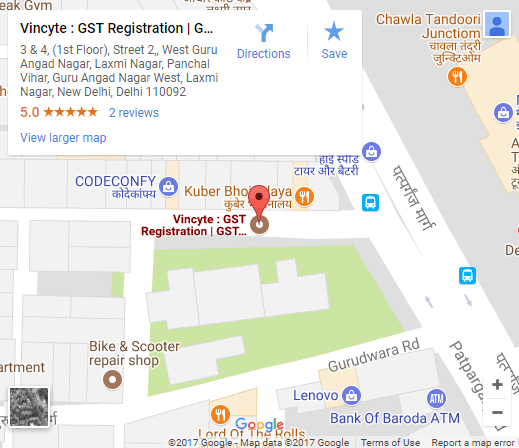
NGO Compliance
NGO compliance refers to the compliance with respect to the laws, rules and regulations and standards set by government or respective authorities under which registration to NGO’s has been granted to govern the operational activities of NGO’s.
Trusts registered under Indian Trust act 1882, Society registered under Society Registration Act 1860 and Section 8 company registered under Companies Act 2013 are required to comply with certain legal and regulatory requirements to ensure transparency and accountability in their operation.
To provide donors with an Income Tax deduction and to themselves with an exemption from paying Income Tax to the Income Tax Department by obtaining a 12A Certificate and 80G certificate, NGOs—whether Trusts, Societies, or Section 8 Companies—must apply for certifications under 80G and 12A.
- Section 80G: This section allows business houses to claim tax deduction for their donation made to the NGOs. To make donors eligible to claim deduction under section 80G, NGOs must have a registration certificate from the Income Tax Department. Provisional 80G registration is valid for 3 years thereafter NGO’s have to apply for Permanent 80G registration certificate which is valid for 5 years. The following are the compliance required under section 80G:-

Maintain Books of Accounts and get them audited annually.

Income Tax return (ITR) on time.

NGOs need to submit a copy of the audit report, ITR and form 10B (if applicable) to the Income Tax Departmen

NGO have to yearly file form 10BD to income tax department for particulars received as donation.
- Section 12A: This section allows NGO to claim tax exemption on their income. To be eligible for exemption under 12A, an NGO must have a registration certificate from the Income Tax Department. For the first 3 years provisional registration certificate will be granted thereafter NGO must apply for permanent 12A registration certificate which is valid for 5 years. The following are the compliance required under section 12A:-

Maintain Books of Accounts and get them audited annually.

Income Tax return (ITR) on time.

NGOs need to submit a copy of the audit report, ITR and form 10B (if applicable) to the Income Tax Department.
NGO Compliance under FCRA
NGOs in India that received foreign donations are required to follow the Foreign Contribution Regulation Act (FCRA) 2010. Here is some compliance required under FCRA act 2010:-
- Registration: NGOs that are receiving foreign donations must have registration under FCRA Act 2010.
- Bank Account: NGOs that are receiving foreign donations must maintain a designated FCRA bank account, which should be only used for foreign donation. It is to note that NGOs must receive their entire foreign donation in this account and all expenses made using these funds must be made from this account.
- Reporting: The Ministry of Home Affairs requires NGOs to submit a report every year which contains details of the foreign contributions they received and how they were used in the previous financial year. Report under Form FC-4 is submitted, and an audited statement of accounts is attached with the form.
- Prior Permission: NGOs that have not registered themselves under FCRA act 2010, may seek for Prior Permission from the Ministry of Home Affairs before receiving any foreign donation.
NGO Compliance Under CSR
Corporate Social Responsibility (CSR) is governed by the Companies Act 2013, which says certain companies should spend a portion of their profits on CSR activities. NGOs that receive CSR funding needs a few compliance under Companies Act 2013:-
- Eligibility: NGOs registered under Section 8 of the companies Act, or registered under any other applicable law, can receive CSR.
- Documentation: NGOs are required to give specific documentation, such as their registration certificate, PAN card, and audited financial records, to the companies providing CSR funding.
- Reporting: Companies that provide CSR funding must receive periodic reports from NGOs the progress and impact of the CSR activities. Additionally, NGOs are required to submit an annual report to the Ministry of Corporate Affairs detailing the year’s CSR activities.
- Use of Funds: The CSR policy of the company that is providing the funding identified that the funds that NGOs receive must be used for the specified purposes. Additionally, NGOs must keep accurate records and accounts of all CSR-funded expenses.
- Tax Compliance: NGOs must follow all tax compliance, including Income Tax and FCRA compliance, when receiving and utilizing CSR Funds.
NGO Compliance Under Section 35AC
Section 35AC of the Income Tax Act, 1961 gives tax benefits to the eligible donors who make donations to specific projects or schemes prescribed by the government. Here is some of the compliance required:
- Approval: To be eligible for Section 35AC tax benefits, NGOs must obtain approval from the National Committee for Promotion of Social and Economic Welfare (NCPSEW). The NCPSEW analyzes the undertaking or plan proposed by the NGO and endorses it in light of specific standards.
- Reporting: Under Section 35AC, NGOs are required to file an annual report with the NCPSEW providing the scheme or project for which they have received donations. Within six months of the end of the financial year, the report must be submitted.
- Use of funds: NGOs must use the funds received under section 35AC only for the approved project or scheme and NGOs need to maintain their records properly, and accounts of all expenses made using funds.
- Renewal: The approval granted by NCPSEW is valid for 3 years, after 3 years NGOs need to apply for renewal. NGOs must provide a progress report and impact of the project or scheme over the 3 years previous years.
- Compliance: NGOs must follow all applicable law and regulation, including the Income Tax Act and FCRA Act, while receiving and utilizing donations under section 35AC.
Additional MCA Compliance for Section 8 Companies
Section 8 companies are Non-Profit Organizations registered under Section 8 of the Companies Act 2013, section 8 companies are subject to regulation by the Ministry of Corporate Affairs (MCA). Here is some of additional compliance required under section 8 of the companies act:
- Registration: Section 8 companies must be registered with the Registrar of Companies (ROC) under the MCA. It required Memorandum of Association (MOA) and Article of Association (AOA)
- Governance: Section 8 companies must follow with requirements given in the companies act 2013, including maintaining books of accounts, holding regular meetings with the directors and members of the company, and filing annual statements with the ROC.
- Change in Management: Section 8 companies must report changes in management or board of directors with ROC within the prescribed time limit given in Companies Act 2013.
- Fundraising: Section 8 companies must follow the regulation of fundraising given in Companies Act, 2013, including restriction on accepting deposits and limitations on raising capital through the issue of shares.
Get In Touch

Contact Us
New Business

